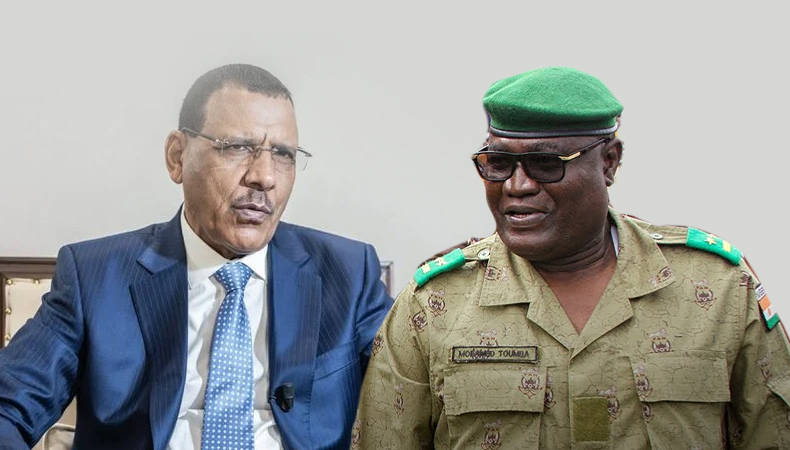Niger’s Military Junta Defies International Pressure, Plans Prosecution of Deposed President

The military junta in Niger has announced its plan to prosecute ousted President Mohamed Bazoum on accusations of high treason and compromising national security. This daring move shows its ambition to hold onto power. Concerns about the nation’s political stability and devotion to democratic ideals have been raised by the junta’s decision to take legal action against Bazoum, who was ousted in a recent coup.
A Defiant Junta
In defying international calls for a return to democratic governance, the military junta in Niger has demonstrated fantastic tenacity. The junta is steadfast in its pursuit of accusations against Bazoum despite increasing pressure from several sources, particularly the West African regional group ECOWAS (Economic Community of West African States). In a sign of the growing gap between the junta’s actions and the international community’s expectations, ECOWAS voiced dismay at the junta’s decision to prosecute the ousted president.
Approximately three weeks earlier, the military staged a coup to remove Bazoum, who had been the president of Niger. Since the coup, Bazoum has been imprisoned in the cellar of his palace, which has raised concerns about his welfare and the circumstances of his detention. Bazoum’s doctor stated that despite these challenging conditions, he is still “in good spirits.” International calls for his release have grown more vociferous, and the U.S. State Department has denounced the accusations against him as “unwarranted and unjustified.”
Keep Reading
International Reactions and Concerns
The international community’s response to the junta’s decision has been unequivocally critical. The U.S. State Department denounced the claims as obstacles to a peaceful resolution and a disdain for democracy and the rule of law. In addition to imposing sanctions on the junta, ECOWAS, which had threatened military involvement to undo the coup, has now stopped electricity to Niger. The ensuing blackouts have exacerbated the nation’s escalating anger.
Concerns regarding Bazoum’s health and well-being have been raised due to his detention, together with that of his wife and son. According to reports, Bazoum’s health has worsened while his son, who has a chronic illness, hasn’t received the care he needs. The conditions of their custody have been attacked as harsh and degrading and in violation of international human rights norms by international human rights organisations, including the UN’s chief for human rights.
The political motivations behind the charges against Bazoum have also raised alarm. Human rights activists and observers have expressed concerns that the accusations may be politically motivated to further the junta’s goals of stifling opposition and consolidating control. As the crisis worsens, there are rising concerns that it can cause more unrest in the area.
An important turning point in the continuing political crisis was reached with the military junta of Niger’s decision to prosecute ousted President Mohamed Bazoum for high treason and damaging national security. Concerns about the country’s democratic trajectory and stability have increased as a result of the junta’s resistance to international pressure and its steadfast determination to maintain power. The future of Niger is in jeopardy, with ramifications that may go beyond its boundaries, as ECOWAS and other international actors continue their efforts to resolve the issue.







